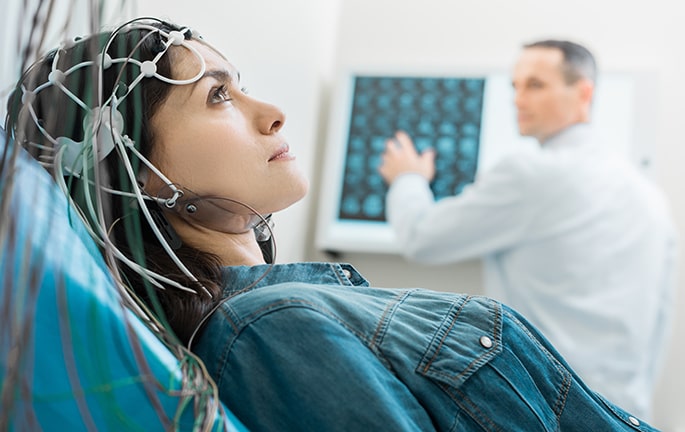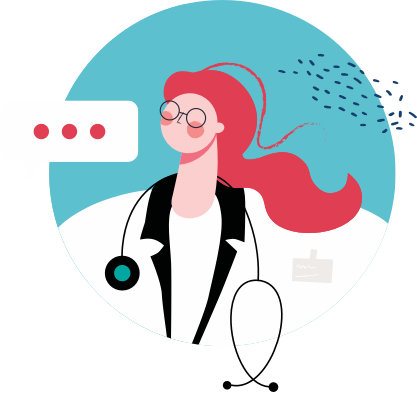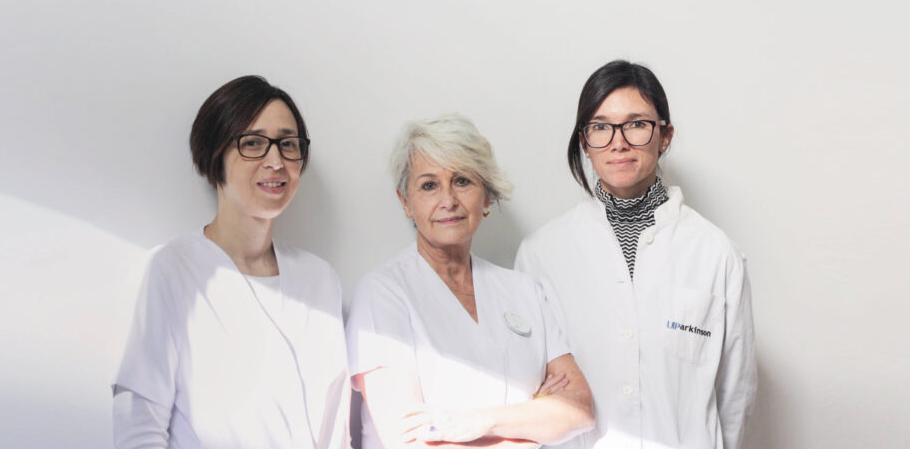Neurology
Solve your doubts about neurology. We talk to you about the diseases it treats, the main techniques it uses, both for diagnosis and treatment of pathologies, and the symptoms of a neurological problem. We also tell you when to visit a neurologist; Book your appointment at one of our hospitals.

What is neurology?
Neurology is the branch of medicine that focuses on the diagnosis and treatment of diseases affecting your central nervous system, which includes the brain and spinal cord, and the peripheral nervous system, which includes the nerves and muscles.
Our neurologists combine clinical diagnosis with advanced testing technology, which increases the effectiveness of the scans. At Quirónsalud our team of specialists works together with other services such as radiology, neurosurgery and interventional neuroradiology to offer the greatest accuracy in your diagnosis and treatment.
What does neurology study?
Neurology focuses on studying the characteristics and functioning of the nervous system when it is healthy, and on the different pathologies that can alter it. Our doctors specialise in particular fields in order to provide an accurate diagnosis and treatment:
- Functional neurology: studies disorders that relate to the way the brain functions and are not caused by structural damage. These types of disorders may affect vision, hearing or walking ability.
- Vascular neurology: focuses on diseases caused by a poor blood flow to the brain, such as strokeStrokeStroke , cerebral embolism or vascular dementia.
- Neurophysiology: Neurological studies ranging from nerve function to sleep disorders.
- Muscular neurology: Assesses the diseases that can manifest themselves as loss of strength.
- Child neurology: deals with nervous system disorders during their development (from babies, up to the age of 18) such as epileptic seizures, developmental delay, intellectual disability or dyslexia.
- Memory neurology: Studies the processes that lead to loss of memory and even language abilities, regardless of the level.
- Movement disorder neurology. Diseases that manifest themselves with an increase or often a decrease in movement and are often accompanied by tremors.
- Epilepsy neurology: Studies patients with epileptic symptoms, both those manifesting as seizures and many others with different symptoms.
- Neuroimmunology: Nervous system disorder due to a malfunction of the patient’s immune system. The most common case is multiple sclerosis.
- Neuro-oncology. Studies nervous system tumours, both benign and malignant.
- Headache neurology: Undoubtedly the most common neurological symptom with multiple causes. Includes migraine.
Which patients is it for?
Our neurologists treat nervous system disorders of patients of all ages and also specialise in pathologies that are difficult to diagnose, which is why they provide second opinion consultations.
Techniques, procedures and diagnostic methods
The use of cutting-edge technology is a key pillar at Quirónsalud, to help us make a quick, effective neurological diagnosis. This often includes procedures such as the following:
- Magnetic Resonance Imaging (MRI): a diagnostic imaging test that shows the brain and spinal cord, and can detect tumours, lesions caused by trauma, spinal cord disorders, aneurysms, vascular problems or brain atrophy.
- Computerised axial tomography (CAT): an X-ray to rule out structural abnormalities, skull fractures, brain tumours or circulatory problems.
- Electromyogram: studies the electrical activity of nerves and muscles using electrodes and small needles.
- Evoked potentials: diagnostic tests that record the brain’s responses to specific visual, auditory or tactile stimuli and detect whether the electrical response occurs at the right place and time.
- Electroencephalogram: studies brain activity at baseline, during sleep and after receiving specific stimuli.
- Cerebral angiography: used to detect vascular problems in the brain using a catheter with contrast and X-rays. It provides detailed images of the brain to make a diagnosis while also treating certain pathologies, all in one single procedure.
Diseases and symptoms
Main pathologies and diseases
Some of the neurological disorders that are most commonly treated in a consultation include:
- Multiple sclerosis
- Meningitis
- Alzheimer’s
- StrokeStrokeStroke
- Parkinson’s
- Amyotrophic lateral sclerosis (ALS)
- Fibromyalgia
- Epilepsy
- Huntington’s disease
- Dementia
- Brain tumour
- Muscular dystrophy
- Instability
- Headaches, including migraine
Related symptoms
The most common symptoms of neurological pathologies include the following:
- Trembling
- Convulsions
- Essential tremor
- Absence seizures
- Joint pain
- Disorientation
- Memory loss or impairment
- Muscle stiffness
- Changes in speech or difficulty speaking
- Uncontrolled movements
- Intense headache
- Loss of strength in one half of the body
- Loss of sensitivity
- Double vision
- Total or partial loss of vision
- Dizziness
- Leg cramps or spasms
- Loss of consciousness
- Blurred vision
- Personality or behavioural changes
About the neurology consultation
We solve any doubts you may have before you see the specialist
Your first appointment with our neurologist usually begins with a conversation with the doctor to not only understand the reasons for the visit but also to detect any other symptoms. This is followed by a physical examination to check balance, sensitivity, or strength.
Faster diagnosis
At Quirónsalud, we have recently activated protocols that allow us to reduce the number of unnecessary appointments. We achieve this by bringing forward diagnostic tests and taking into account the symptoms and other variables, so that when the patient visits the specialist, the results are already there and available. This is possible provided that the specialist has certain information available, including symptoms, history, reason for consultation and other factors.
With these protocols, the main objective of enhancing the efficiency of healthcare quality is achieved by saving patients unnecessary visits, expediting diagnosis, and consequently, treatment.
What should you keep in mind?
We recommend consulting a neurologist when signs indicative of a neurological problem are detected. Early diagnosis is essential in these cases, so you should visit a specialist as soon as possible.
What should I take to the appointment?
We recommend that you go to the appointment with a list of the symptoms, both those perceived by the patient and those noticed by family members, and the results and reports of any other tests that have been carried out.
You may receive a questionnaire a few days before your appointment asking about your medical history, usual medication and other specific questions that will allow us to anticipate certain aspects of your consultation, helping us expedite your treatment and offer you a more personalised care. To do this, we recommend that you download the free Quirónsalud Patient Portal application, which will facilitate communication with your healthcare team.

If you have any further questions, please contact us through the Patient Services telephone number: 900 301 013


































































































